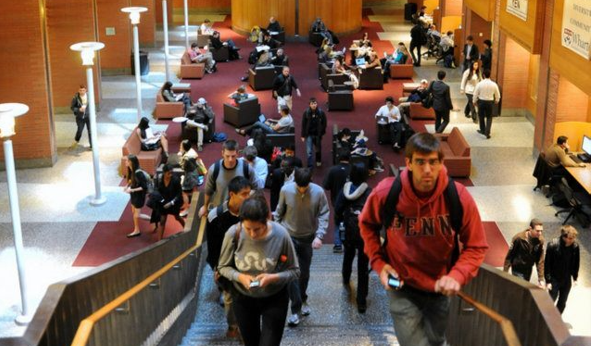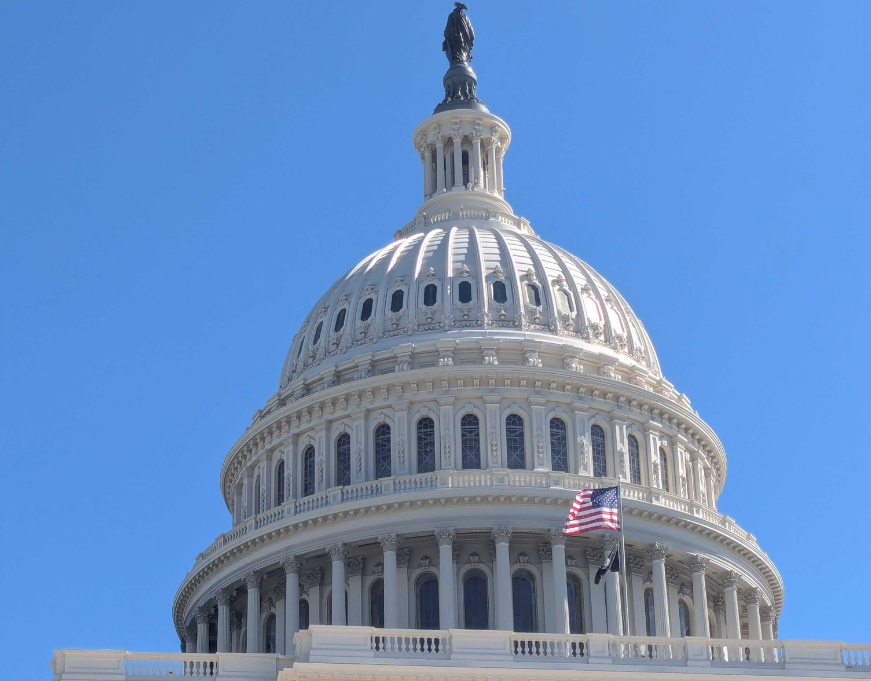Restricting merit-based interviews will increase confusion, worsen nepotism, and leave students unprepared for the real world.
Photo Credit: University of Pennsylvania Facebook
By: Abraham Franchetti
On July 30th, Wharton administrators unveiled a set of new club regulations they claimed necessary to comply with the recently enacted Stop Campus Hazing Act. Mike Elias, Wharton’s Senior Director of Strategy and Operations, emailed club presidents the following statement:
“Based upon the updated federal guidelines, Wharton Undergraduate no longer permits the following activities in the club recruitment process: Multiple rounds of interviews and/or assessments, Requiring or expecting students to possess subject-matter expertise or prior technical knowledge.”
In their a follow up statement, administrators explicitly barred Wharton-affiliated clubs from asking questions regarding potential investment opportunities, familiarity with programming languages, and “…any form of case scenario or problem-solving prompt tied to industry specific knowledge”.
However, the Stop Campus Hazing Act does not ban finance clubs from asking about “subject-matter expertise” or consulting clubs from presenting case studies. Instead, the new federal law cracks down on activities which “causes or creates a risk… of physical or psychological injury.” This legislation is meant to prevent organizations from requiring dangerous activities such as alcohol abuse, not investment pitches. Office of Student Affairs (OSA), which governs most clubs at Penn, does not share the Wharton administration’s extreme view. OSA led leadership training focuses on preventing actual hazing, such as compulsory alcohol abuse, and has not banned engineering clubs from asking about which coding languages applicants know. Other universities with similar finance and engineering-related clubs, like Duke and NYU Stern, still incorporate stock pitches in the club application process. Wharton’s new position on barring these well-intentioned practices in club applications provides an example of administrator’s abuse of power in misinterpreting federal law to exert control and further disregard students.
I’ll be the first to admit Wharton club applications are stressful. Last spring, I advised incoming freshmen to “expect clubs to be crazy.” However, this process isn’t just crazy from an applicant’s perspective. In addition to planning events and running interviews, Wharton club leaders must jump through an ever increasing number of administrative hoops, including a narrow Office of Student Affairs (OSA) registration window, day-long mandatory training, and a poorly-planned activities fair. Popular clubs such as the Wharton Undergraduate Finance Club,where I previously served as Vice President of the Investment Team, can receive as many as ten times the applicants they have capacity for. This cap on club admission is directly tied to the room-capacity of standard Wharton classrooms and is around 60. When evaluating hundreds of applicants, asking students about core knowledge was an important and necessary filter to create a fair process. In doing so, we were able to sort students between the more advanced Investment Team and the Case Team, which is open to all students and teaches basic modelling skills. Banning knowledge-based assessments won’t increase admission rates or reduce applicants’ workload. Instead, it will undermine meritocracy and worsen an already challenging process.
For more clarity on these new practices, I contacted Michael Elias and Caroline Pennartz, Director of Reputation Management & Dean’s Communication with the following questions:
1. What students, organizations, or groups were consulted or included in creating these new rules?
2. These rules go far beyond what is required in the Stop Campus Hazing Act, what is the rationale for that? Was there some kind of triggering event?
3. Some students are concerned that removing the opportunity to ask evaluative questions will exacerbate issues of nepotism or high school quality disparity. How was this considered in the development process and what advice do you have for affected students?
4. Banning questions related to technical knowledge makes normal coursework questions off limits. Can interviewers ask students how they did in courses such as Accounting 1010 instead?
5. Given that accounting technical and equity pitches are common in internship interviews, is there any concern that students will be left unprepared for the real world?
6. Were these rules posted publicly somewhere yet? If not, how will students know what to prepare?
Rather than provide important information to affected club leaders and applicants, the Wharton Undergraduate Division responded:
“Wharton undergraduate student clubs serve an important role in advancing students’ professional exploration by providing opportunities for networking, educational engagement, and immersive industry experiences. The Wharton Undergraduate Division remains committed to working in close collaboration with Wharton Council and Wharton undergraduate student clubs to support the ongoing changes to club recruitment processes while preserving their educational mission.”
Poor communication and a refusal to address dissent is a disappointing response from Wharton’s administration. Club leaders volunteer their time and effort to help their peers, and deserve straightforward answers from administrators who are ostensibly here to support them.
These restrictions will make club applications fundamentally less meritocratic. Rather than asking students about relevant knowledge they can learn on campus or self-study, interviewers will have to focus on a student’s experience. This will sway club admission outcomes towards those who attended preparatory high schools or gained professional experience early. Students who have been told that they should lead with what programming languages or valuation techniques they know unprompted will perform better than those uncoached. More simply, without concrete ways to distinguish among hundreds of applicants, those with the right connections will stand out the most. If Wharton administrators were truly concerned with fairness, they would focus on promoting meritocracy, while also providing resources to those whose knowledge lags.
Weakening the application process disservices students in the real world too. Previously, club interviews mirrored those students could expect applying to internships and jobs in competitive industries like banking and consulting. The benefit of interviewing for a club was not just potential admission, but a lower stakes scenario to test your knowledge and an incentive to study. Moreover, just as high level courses have prerequisites, competitive groups should be able to admit those with appropriate expertise, and direct those without it to appropriate opportunities. Otherwise, students will be mismatched with education appropriate for their skill level. These policies further coddle students without good reason, leaving them underprepared for higher-stakes interviews to come.
As administrators create more and more hoops for organizations to jump through, students will be incentivized to forgo Wharton’s prestigious brand and move to off campus organizations. Even before the new restrictions, a ban on equities trading regulated Wharton-registered clubs into a disadvantage versus peers. The Edinburgh University Trading and Investment Club, which I attended when I studied abroad, manages more than $100,000. On the other hand, the Wharton Investment and Trading Group manages nothing. At Penn, organizations such as Global Platinum Securities (AUM $400k) and Violet Quaker (AUM $120k+) are able to provide students with real world investing experience only because they are not affiliated with Wharton.
“If Wharton clubs weren’t prevented from trading stocks, students across the university could have better learning opportunities” said David Liu, Vice President of Investment at WUFC and President of Violet Quaker.
Wharton administration’s ban on subject matter interviews both exceeds their mandate and leaves students worse off. Increasing randomness, creating additional risk for nepotism, and leaving students less prepared for the real world all increase stress and harm the co-curricular experience. If Wharton administrators truly cared about students, they would repeal these rules and provide resources to students instead.
Abraham Franchetti is a senior in Wharton studying Finance with a minor in Classical Studies from Port Washington, NY. Abraham is President Emeritus of the Wharton Management Club and the Business Director for The Pennsylvania Post. His email is abrahamfranchetti@gmail.com




